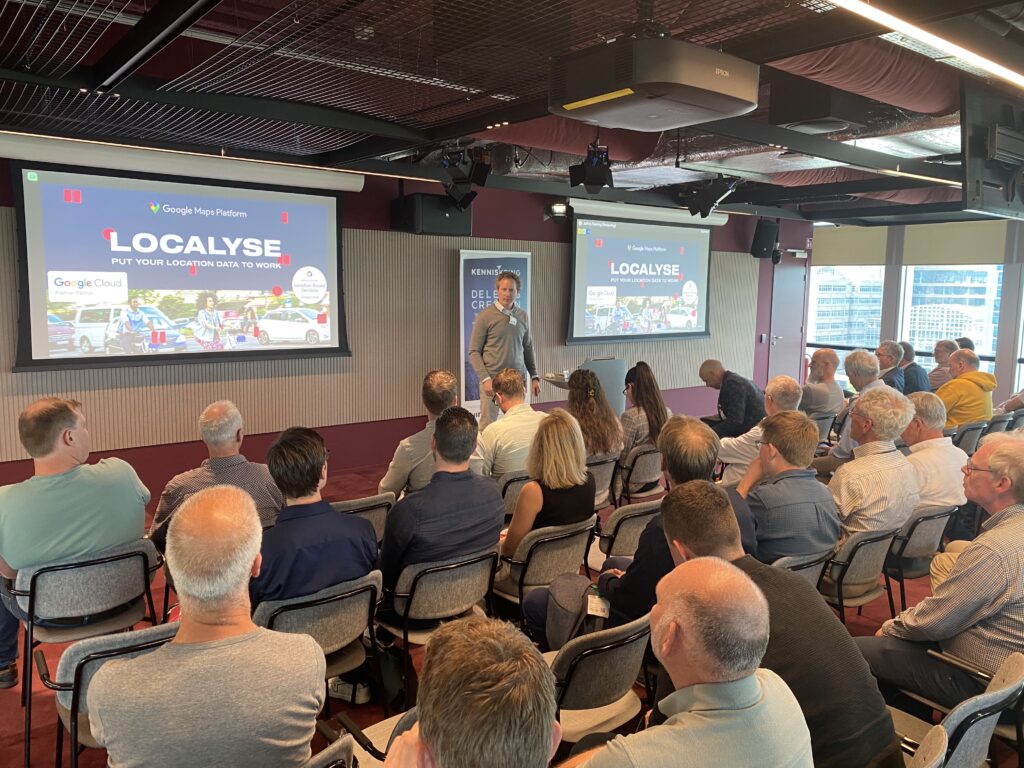On 16/05/2024, Localyse, a proud Google Cloud Partner, hosted an exciting location intelligence event at Google Amsterdam. Joined by our colleagues from Ruimteschepper and Google Cloud, we embarked on a journey to explore the latest advancements in geospatial technology and its impactful use cases.
Kicking Off with Google Earth Engine
The event began with insightful presentations on Google Earth Engine by Yishai Lurie and Tuvia Alon from the sustainable team of Google. They demonstrated how this powerful tool can be utilized to tackle complex sustainability challenges. From monitoring environmental changes to managing natural resources, Google Earth Engine offers solutions that drive global sustainability efforts.
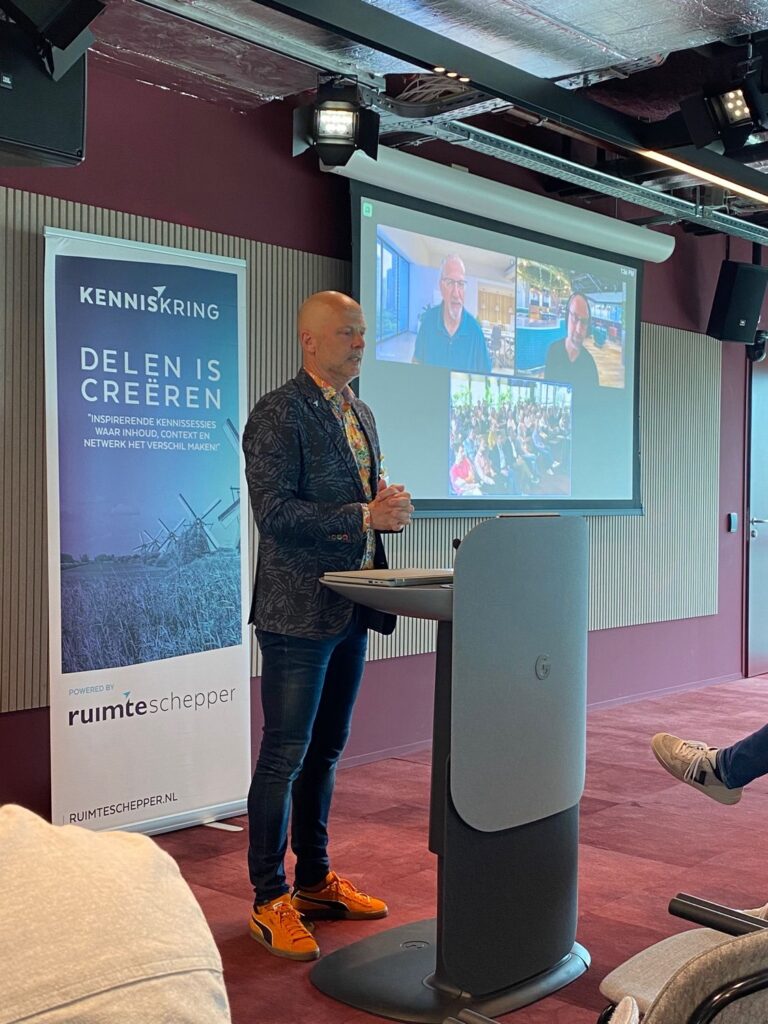
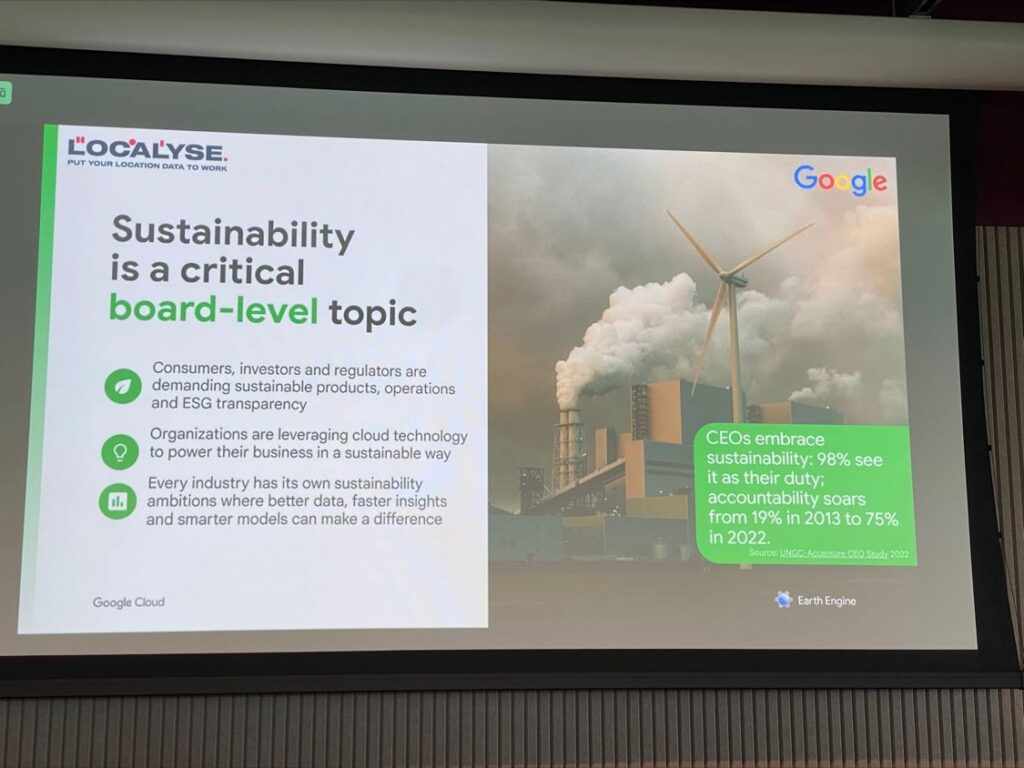
Introduction to Google Cloud
Roderick Schaefer took the stage to introduce Google Cloud, highlighting its status as the safest and greenest cloud platform in the world. Powered by artificial intelligence, Google Cloud offers unparalleled security and sustainability, making it an ideal choice for businesses looking to innovate responsibly. He talked about Cloud Workspace and the ability to use Chromebooks for development. These nifty machines are powerful enough to run numerous applications of Google Cloud. Acer is one of our preferred partners for Chromebooks.
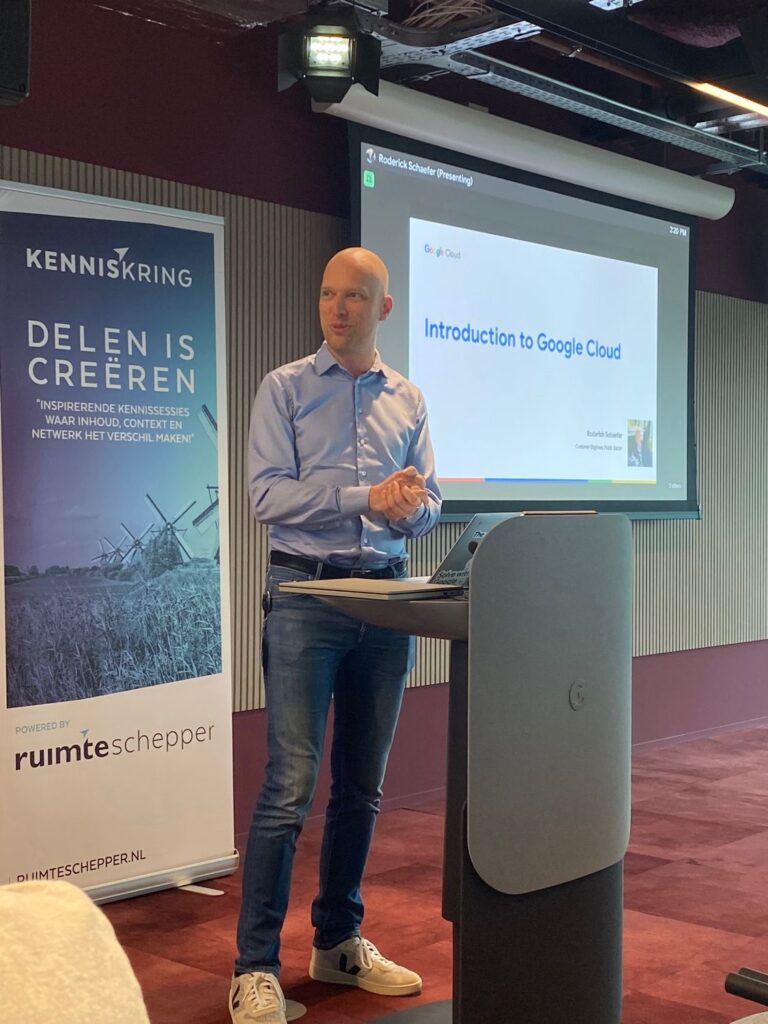
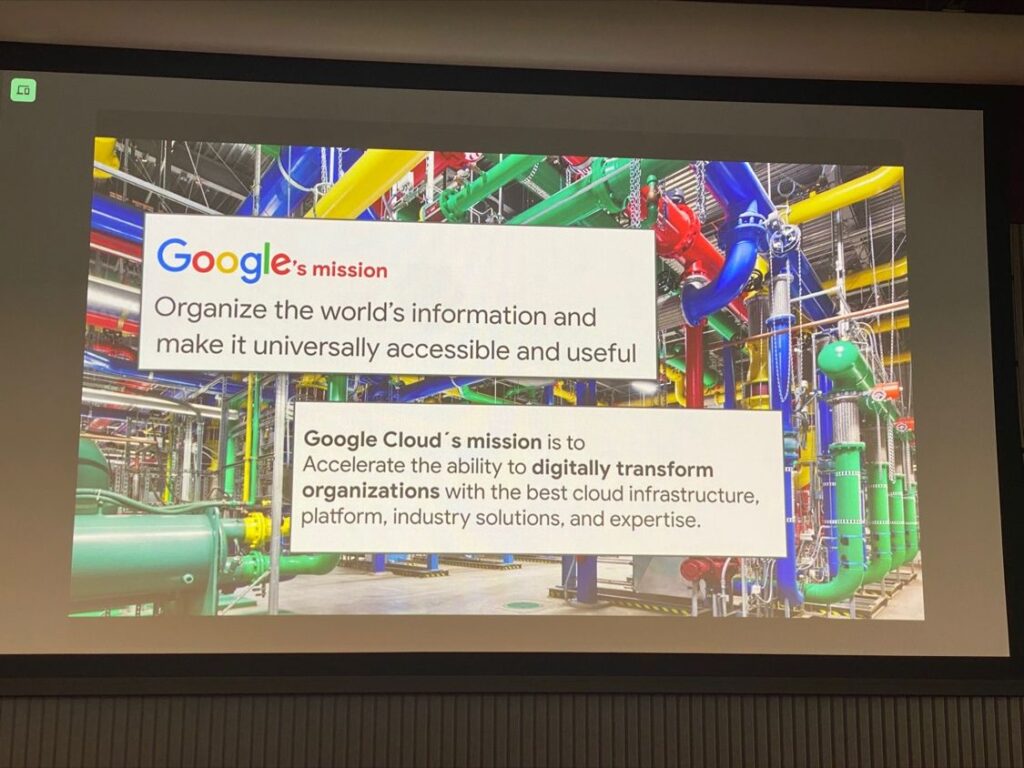
Exploring the New Places API and Generative AI
Our colleagues Jeffrey Benning and Eline V. provided an in-depth look at the new Places API of the Google Maps Platform. They showcased how generative AI (GenAI) opens up new possibilities and use cases, enhancing the capabilities of location-based services and applications. These new features include the fact that you can now add attributes and categories to listings, for example, to inform your customers about if they can still pay cash or if they have to use a debit card.
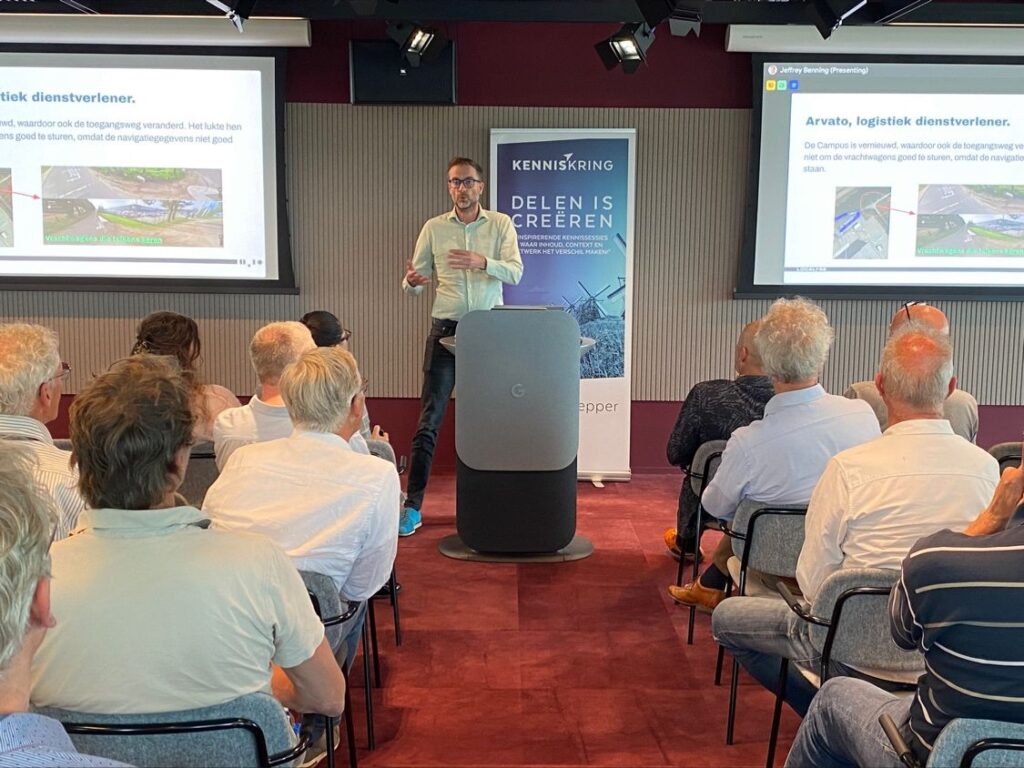
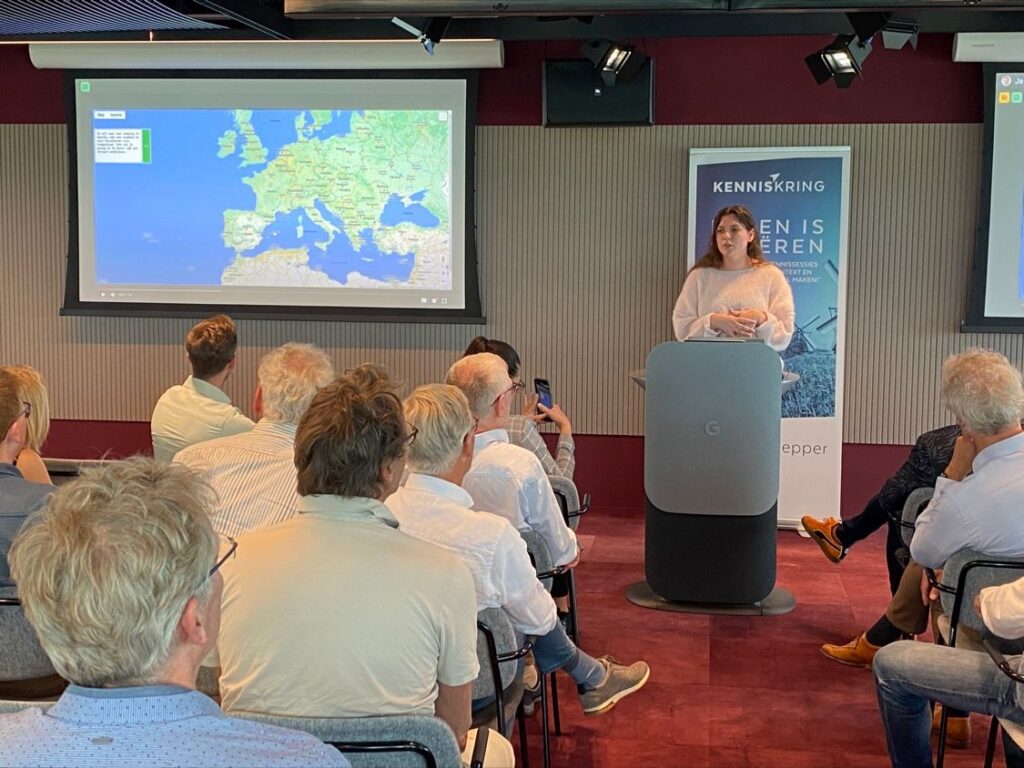
Real-world Use Cases with Google Earth Engine
The event also featured compelling presentations from our customers, showcasing real-world applications of Google Earth Engine. Rik van Neer from Rijkswaterstaat discussed vegetation monitoring, while Sven Verweij from NMI Soil for Life presented on global carbon mapping. These use cases highlighted the potential of geospatial technology in promoting planetary sustainability.
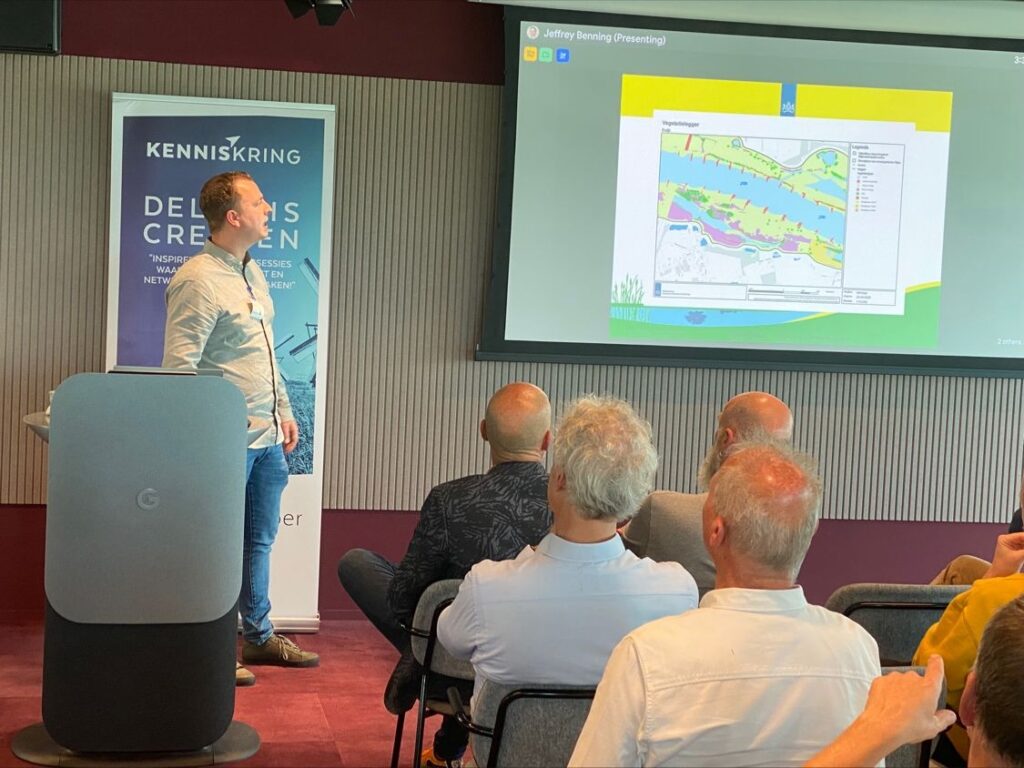
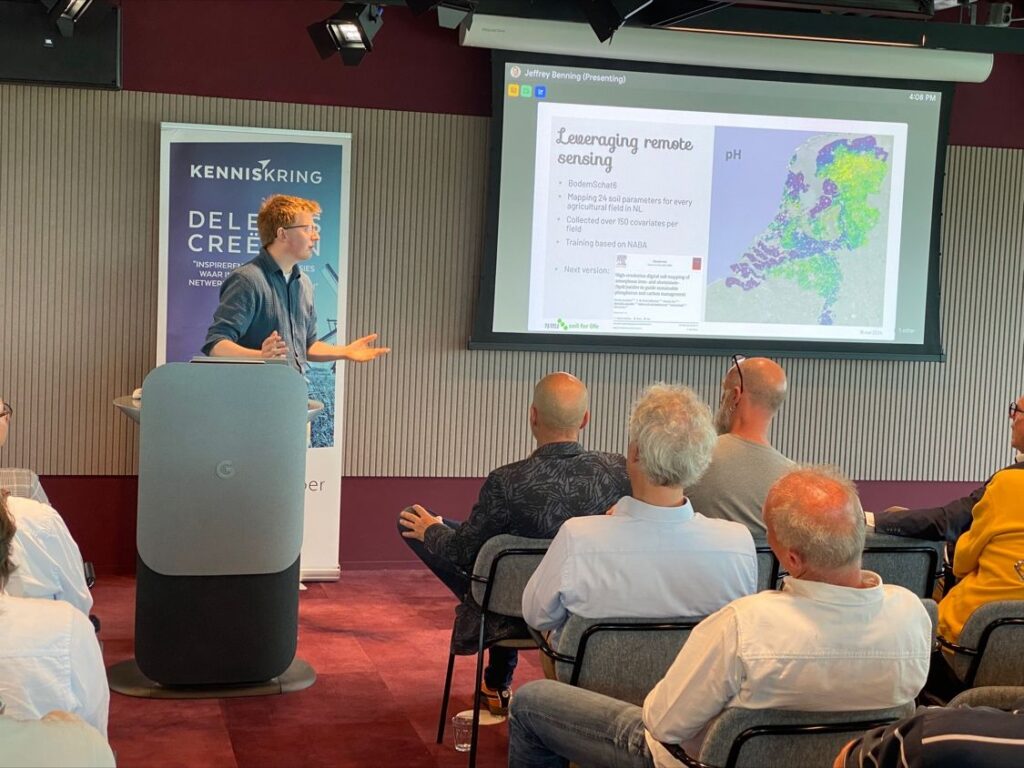
Conclusion
The event was a testament to the power of collaboration and innovation in geospatial technology. We are grateful to all the speakers and attendees who made it a success. Together, we are paving the way for a sustainable future through location intelligence.
If you want to receive the slide deck, feel free to contact us!
